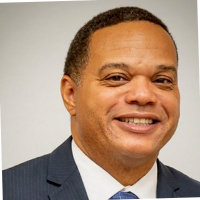 Greensboro DUI-DWI Lawyers, North Carolina
Greensboro DUI-DWI Lawyers, North Carolina
Sponsored Law Firm
-
 x
x

Click For More Info:
-
Keches Law Group
122 Dean Street Taunton, MA 02780» view mapSocial Security, Personal Injury, Workers Comp. Protecting Your Rights
Our team of experienced personal injury attorneys has over 130 years of combined experience representing individuals and families injured due to the negligence of others.
800-713-8650
Sponsored Lawyers
1-6 of 6 matches
DUI-DWI, Criminal, Car Accident
Lawrence Thomas McPhail is a retired Troop Commander for the North Carolina State Highway Patrol, having served for twenty-eight years. He also served proudly in the U.S. Army Reserve. McPhail attended North Carolina Central University as an undergraduate, majoring in Criminal Justice and graduating with summa cum laude honors in 2007. In 2011, he graduated from North Carolina Central University School of Law Evening Program and earned his Jurist Doctorate. Subsequently, he passed the North Carolina State Bar and received his law license. McPhail is trained and knowledgeable in Advanced Roadside Impaired Driving Enforcement, Driving While Impaired Detection, Standardized Field Sobriety Test (SFST), and the Intox EC/IR II, an automated breath testing instrument used in North Carolina to detect and measure alcohol in a person’s breath. He has also received training in the operation of the Radar and Lidar instrument used for speed enforcement in North Carolina. Due to his training and his supervisory role over State Troopers he is aware of what to look for on traffic tickets and what is required for a law enforcement officer to conduct an investigatory traffic stop.
(more)


 Sean Flaherty Taunton, MA
Sean Flaherty Taunton, MA AboutKeches Law Group
AboutKeches Law Group Practice AreasExpertise
Practice AreasExpertise

